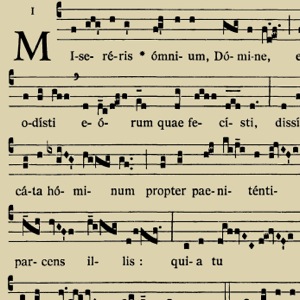
 EW PARISHES ARE WILLING to sing Gregorian Introits for the Entrance procession. A growing practice is to sing the Introit followed by a hymn. If even this is too much, one may want to sing the Introit as a prelude. This practice allows the faithful to be exposed to the prayerful power of Gregorian Chant when singing the propers is not feasible. Furthermore, this is an excellent opportunity to engage the congregation more deeply and frequently with these transformative texts and chants.
EW PARISHES ARE WILLING to sing Gregorian Introits for the Entrance procession. A growing practice is to sing the Introit followed by a hymn. If even this is too much, one may want to sing the Introit as a prelude. This practice allows the faithful to be exposed to the prayerful power of Gregorian Chant when singing the propers is not feasible. Furthermore, this is an excellent opportunity to engage the congregation more deeply and frequently with these transformative texts and chants.
For example, one can seize this opportunity on Ash Wednesday when the pews are filled with many who do not attend mass regularly. It is significant that the very first Introit of Lent sings of God’s infinite mercy: “Your mercy extends to all things, O Lord, and you despise none of the things you have made. You overlook our sins for the sake of repentance. You grant them your pardon, because you are the Lord our God.” —Wisdom 11:24-25, 27; Psalm 57 (56)
Free Download:
PDF • Misereris omnium | Introit | Ash Wednesday
 N THIS RECORDING of Misereris omnium, the antiphon is followed by organ variations. The transformation and variety of colors in the organ indicate that through the Lenten season, we do not end up in the same place that we started. Beginning with the thick and rich clarinet stop in the tenor, the piece explores many colors, ending with very light 4’ flutes, in anticipation of Christ’s resurrection.
N THIS RECORDING of Misereris omnium, the antiphon is followed by organ variations. The transformation and variety of colors in the organ indicate that through the Lenten season, we do not end up in the same place that we started. Beginning with the thick and rich clarinet stop in the tenor, the piece explores many colors, ending with very light 4’ flutes, in anticipation of Christ’s resurrection.

DESPITE BEING AN ORGANIST with a wonderful instrument at my disposal, I tend to not play instrumental preludes or postludes during Lent with the exception of Laetare Sunday. As such, I find the sung preludes to be effective and even popular as a way of preparing the congregation for prayer, which is the intention of a prelude after all. (That being said, I cannot help but to compose organ variations on this wonderful chant.)

